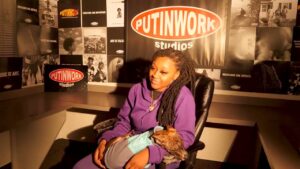Black children show interest in STEM careers, yet obstacles in access hinder their aspirations from becoming reality. This insight is highlighted in a recent report from tech skills platform YouScience and Black Girls Do STEM, a nonprofit organization focused on advancing Black representation in STEM fields. The 2024 Black Students and STEM Report underscores a notable career exposure gap due to underrepresentation in STEM professions, rather than a lack of interest among Black children.
Cynthia Chapple, Founder and CEO of Black Girls Do STEM, emphasizes the need to redefine education for Black students by providing access to identity-affirming informal learning environments. She believes this approach will help students recognize their full potential and the range of career opportunities available to them based on their unique aptitudes.
The report also reveals a significant disparity between male and female interest and access in STEM disciplines. Contrary to some beliefs that girls are less interested in STEM careers, the report found that a higher percentage of Black female students surveyed have an aptitude for careers in Advanced Manufacturing, showcasing their interest and potential in these fields.
In the engineering and science sectors, Black women make up just 1.8% of the workforce, highlighting the need for increased representation and support for Black individuals pursuing STEM careers. Edson Barton, Founder and CEO of YouScience, stresses the importance of bridging exposure gaps and providing early educational interventions to help Black students understand the breadth of opportunities available to them.
One notable organization working to address these challenges is Black Girls Do STEM, which aims to empower female students and build confidence in their abilities to pursue STEM careers. By fostering a supportive environment and promoting access to resources and programs, initiatives like Black Girls Do STEM play a crucial role in closing the gap and encouraging more Black students to pursue and excel in STEM fields.














